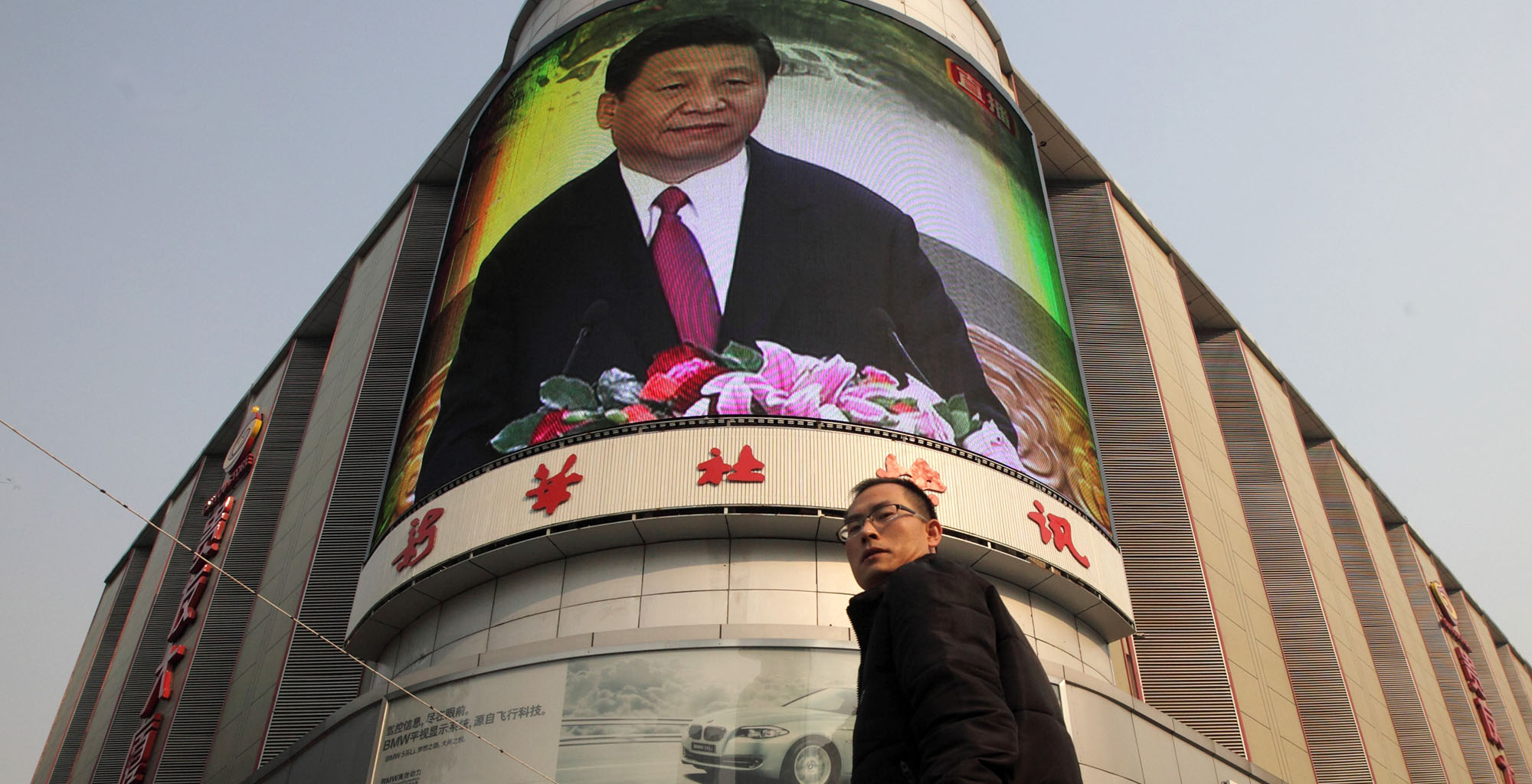Since the early days of the American and French revolutions towards the latter part of the 18th century, it has become an increasingly accepted truism globally that their democratic example has been appropriate, valuable, and beneficial to those nations which practise it — and where their citizens live under its logic and structures. US politicians have traditionally boasted that their nation served uniquely as “a light among the nations”. Meanwhile, the French have argued for centuries that their national mission was to carry out a “mission civilisatrice” to the rest of the world — and especially the places it colonised.
A corollary to such statements has been an understanding that expanding democracy’s writ is a particularly worthy, virtuous action. (The Marxist view, of course, was that those deeply embedded, all-encompassing economic forces largely prevented the real expansion of liberties and freedom for the mass of people until the power of those underlying forces were fundamentally broken. That perspective, at least as far as governments are concerned, has now largely been swept away following the end of the Soviet experience.)
While there are deep roots for democracy as a philosophical and political construct that reach back more than two millennia to ancient Greek thinkers and the (albeit limited) experiences of the Athenian polity, as a practical matter, democratic government, even in its rudimentary or partial forms, has been a relative newcomer. It was developed in a world that had long witnessed absolute monarchies, miscellaneous forms of despotism, autocracies, totalitarian dictatorships and expanding empires by the dozens, along with the more troubling intervals of Hobbesian chaos and anarchy in many parts of the world throughout history.
In our present circumstances, rather than any realistic threats of new absolute monarchies or old-style all-encompassing, totalitarian dictatorships arising freshly in democratic nations, there are two real threats to the primacy of the ideal and idea of democracy.
The first is that the threat/challenge/temptation from a seemingly powerful, alternative idea — something increasingly being labelled as Chinese technocratic authoritarianism.
The second comes from within ostensibly already democratic societies and nations that aspire to become such. This threat stems from the increasing intolerance within such societies and by leaders towards some of the basic core ideas a democratic state is based upon.
For the first challenge, the basic argument of its largely Chinese proponents has been based on its apparent efficiency in resource use (and often ignoring externalities) and its effective allocation mechanisms in the delivery of infrastructure, goods, and services to the population, but determined by a small ruling elite. This success, therefore, comes at a price. There is little of the citizenry’s engagement in the process of determining who actually makes these major decisions, or who actually gets to determine all those outcomes.
Nevertheless, advocates of this system argue that their undeniable success in lifting many millions out of the abject poverty that had been the lot of the majority of Chinese for thousands of years is, effectively, the self-evident proof of it being a recipe for one great-tasting pudding. Their effectiveness, for example, in building a vast, ultra-fast rail network reaching virtually every major city throughout China in record time becomes a self-evident proof that this fusion of technocracy and authoritarianism works best for the present — and the future. And for everyone. QED.
For proponents, none of that outdated, selfish nonsense about all those formal, Western-style civil rights, the rights of minorities, or the right for all to have a real voice in the choosing of rulers that just stand in the way of constructing a world-leading nation. It may not be all that new an approach. In fact, it actually appropriates much from modern, Western-style capitalism, as well as from the technocracy movement that was popular in the 1930s.
That social movement essentially advocated replacing all those confusing, bickering politicians and selfish businesspeople with scientists and engineers who had the technical expertise to appropriately manage the economy best, with the best of all possible solutions to problems. By now, of course, there is very little being drawn from the Marxism that their technocratic-authoritarian state’s leaders ostensibly say it is firmly grounded in.
Not surprisingly, for the Chinese and their acolytes elsewhere, this technocratic authoritarianism is the wave of the future. Moreover, promoting it has become a hallmark of a new, increasingly assertive, self-assured Chinese diplomacy — something very different from the behaviour of the old China on the world stage.
Chinese representatives now freely chastise Western nations over their sanctimoniousness regarding China’s domestic affairs, but especially direct their criticisms towards the US for being on the path towards becoming a failing, flailing state, increasingly ill-equipped to deal with the manifold challenges of the present and the future. Moreover, in that view, the US is now fatally compromised by the lack of any overarching national social cohesion and far too much individualism, traits that inevitably lead to bureaucratic incoherence and state failure.
Simultaneously, within Western-style democratic societies such as contemporary America, there is real, self-inflicted trouble brewing. A growing blend of toxic majoritarianism, identitarian politics and growing intolerance for any compromise across partisan boundaries threatens to turn nations into ineffectual, non-competitive — and less democratic — ones. For such polities, the centre no longer holds — and, in fact, it sometimes seems it is where the centre seems to have vanished entirely.
Among the biggest tasks of his presidency, Mr. Biden seemed to be arguing, is to prove anew to a skeptical world that both American democracy and its model of democratic capitalism still works — and that it is superior to the very different system Mr. Xi [Jinping, the Chinese president] is ruthlessly enforcing at home as he tries to extend China’s influence around the world.
Collectively, this points to a growing breakdown in a real understanding of the true nature of a democratic polity. Toxic majoritarianism speaks to elected officials and governments who insist that winning an election becomes tantamount to a licence to run rampant over all other interests, parties, groups and individuals and the right to pass or enforce any laws or legal and policy decisions they desire, with little regard to the rest of their nation’s political universe. A compliant judiciary is an important element in such an approach and political compromise becomes seen as a weakness.
Meanwhile, identitarianism means efforts to pursue the interests of individual sectarian ethnic/religious/racial/regional groups as being much more important than any efforts to inculcate a sense of national unity. The US’s white supremacist groups are but one example of this trend. The rising trend of such behaviour is contributing to the slide into forms of near-authoritarianism in nations that had previously seemed well on their way to sturdy progress towards more inclusive democratic values. That rising pattern in the US is helping erode the larger, more inclusive sense of national unity that had taken many decades to achieve.
Concurrently, a growing denigration of the embrace of the value of political compromise — especially in tandem with growing majoritarianism and identitarianism — is making political life that much more difficult and problematic in many democratic states. In the US, there is now a growing, exasperated feeling that the US Congress can achieve virtually nothing of consequence due to these factors, even in the face of grave national crises.
Of course, these problems are not limited to the US experience. In Israel, for example, within the state itself, and beyond the question of the future of the West Bank and Gaza, the inability of the public to form a consensus around one political party’s policies has already led to four elections in less than two years, with the likelihood of yet more instability to come. And this is besides the difficulty in reconciling the political place of Arab-Israelis or the relationship between the more secular parts of society and the ultra-religious section of the population.
In Western Europe, the problematic presence of ultra-rightists and neo-fascists in various states makes political compromise that much more difficult in those nations, as identitarianism recruits the disaffected. Meanwhile, in Japan, with its democratic processes now firmly in place, the continued, decades-long dominance of the Liberal Democratic Party has led to intra-party factionalism and the reduction of the ideas of alternative parties to virtual irrelevance. The factionalism that leads to intra-party infighting has frozen any real effort to confront the country’s very real economic challenges and the incoming demographic time bomb as the proportion of working-age persons in the national population continues to decline.
Of course, South Africa’s own problems with majoritarianism, identitarianism and disdain for broad cross-party compromise continue to give the country its own problems with demonstrating that a democratic polity can adapt quickly, address problems boldly, or reach the kinds of decisions that generate inclusivity rather than conflict.
Given these challenges, perhaps it really is right, as US President Joe Biden has been saying recently, that the 21st century will be one that is a struggle — largely of ideas. That this will be a struggle between the “Chinese model” and a re-energised democratic one that embraces human rights and human values, even as it generates innovative solutions and growth for a general welfare that is better for all. Or, in Biden’s own words, “This is a battle between the utility of democracies in the 21st century and autocracies. We’ve got to prove democracy works.”
Given these challenges, perhaps it really is right, as US President Joe Biden has been saying recently, that the 21st century will be one that is a struggle — largely of ideas. That this will be a struggle between the “Chinese model” and a re-energised democratic one that embraces human rights and human values, even as it generates innovative solutions and growth for a general welfare that is better for all. Or, in Biden’s own words, “This is a battle between the utility of democracies in the 21st century and autocracies. We’ve got to prove democracy works.”
The New York Times’s David Sanger, reporting on the press conference where Biden had spoken, added, “Among the biggest tasks of his presidency, Mr. Biden seemed to be arguing, is to prove anew to a skeptical world that both American democracy and its model of democratic capitalism still works — and that it is superior to the very different system Mr. Xi [Jinping, the Chinese president] is ruthlessly enforcing at home as he tries to extend China’s influence around the world.”
Of course, there is a tantalising third possibility: The Singaporean model. That one relies upon a technocratic leadership cadre that is married to real concerns for the general welfare of the nation’s population, and a fierce support for humane capitalism, but one that has very little real interest in a political system that Western nations would label an exemplar of the liberal democratic order.
The problem with this model, as Singapore is discovering right now, is that its mandarinate’s selection of the next political heir and leader has become so much more difficult, now that the founding father (and his son) will no longer be in charge. Some day, there too, people may insist upon a chance to choose for themselves who leads them, in addition to benefiting from a growing economy.
In the meantime, get your popcorn and watch how Biden’s “battle” plays out in the years to come. DM





 A man walks past a monitor broadcasting a news conference by Xi Jinping in Beijing, China. (Photo: Tomohiro Ohsumi / Bloomberg via Getty Images)
A man walks past a monitor broadcasting a news conference by Xi Jinping in Beijing, China. (Photo: Tomohiro Ohsumi / Bloomberg via Getty Images)